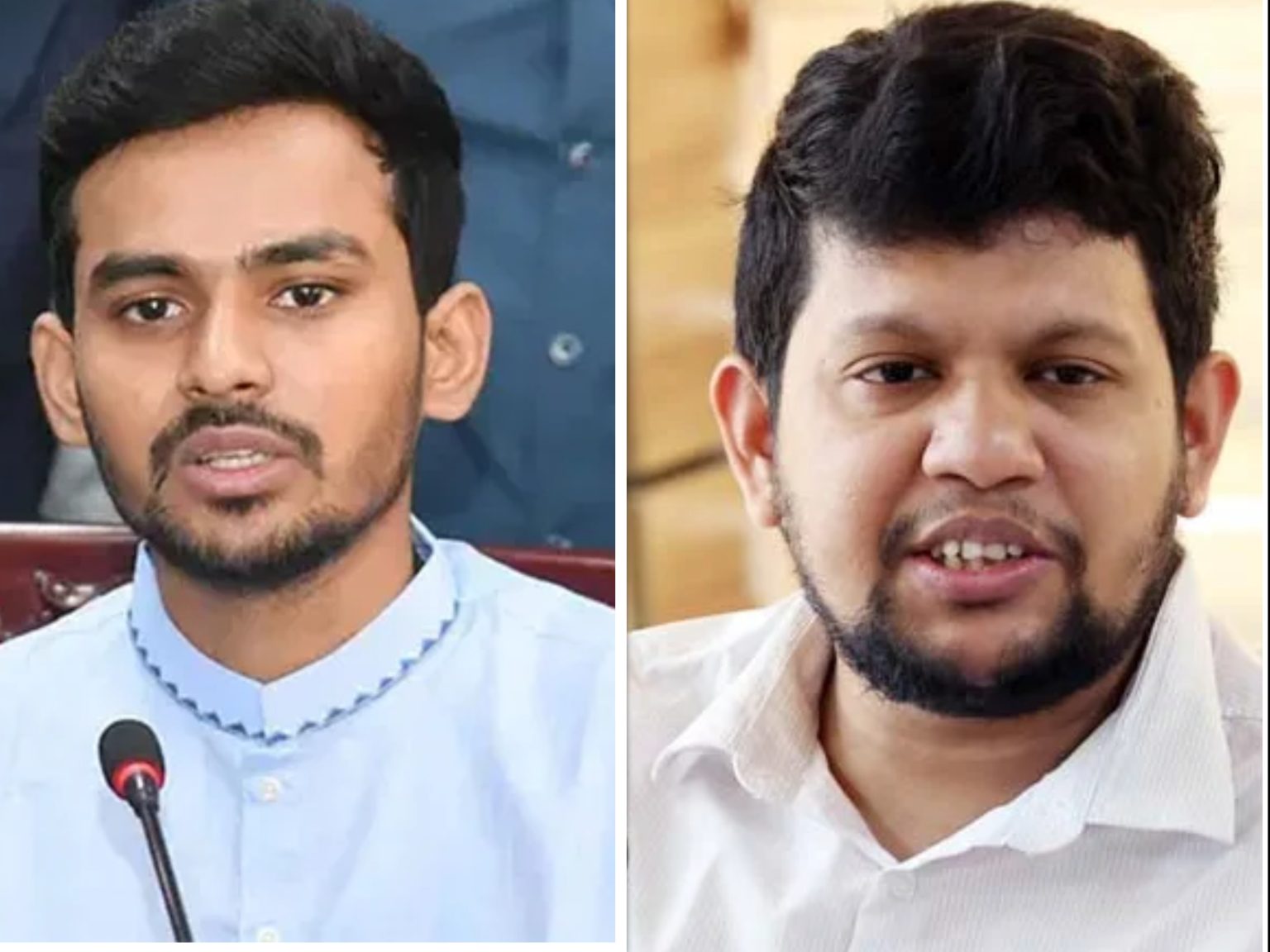Amid ongoing political uncertainty, the National Citizen Party (NCP) has denied any organisational ties to Asif Mahmud Shojib Bhuiyan and Mahfuj Alam, two student leaders currently serving as advisers in the interim government.
The two were appointed following a mass uprising that led to the fall of the Awami League-led government in August last year.
At a press conference held on Saturday at the NCP’s Bangla Motor headquarters in the capital, party convenor Nahid Islam clarified that the advisers joined the interim cabinet as representatives of the movement, not as NCP affiliates.
“If they wish to pursue politics or contest elections, they must resign from their roles in the government,” said Nahid, who had himself joined the interim cabinet and served as information and broadcasting adviser until his resignation in late February this year to take the helm of the newly floated party.
“Linking them to the NCP is a politically motivated smear campaign, and we strongly protest this baseless propaganda.”
Nahid also called on Chief Adviser Muhammad Yunus to remain in office and continue engaging all political stakeholders in constructive dialogue.
He emphasised the importance of a July charter outlining a clear and unified roadmap for judicial reform, political restructuring, and credible elections — steps he said are vital to rebuilding public and political trust.
Yunus, a Nobel Peace Prize laureate and founder of Grameen Bank, has faced criticism over slow progress and mounting political pressure since his appointment.
According to Nahid, Yunus expressed concerns during a private meeting on Thursday evening about being forced into overseeing a “controlled election”—a scenario he does not support.
“He was brought in to lead fundamental reforms, especially in the judiciary,” Nahid said. “If he cannot fulfil that mandate, the purpose of his leadership is undermined.”
Addressing the military’s role, Nahid acknowledged its importance in ensuring security but warned against political involvement.
He criticised the delayed release of a list of 626 individuals by the armed forces, saying earlier disclosure could have prevented public suspicion and unrest.
Nahid also blamed the Awami League for the current political disunity.
“The BNP has consistently pushed for elections, but our goals post-uprising include more than just a national vote—structural reform is equally essential,” he said. “Despite ideological differences, we must unite for the country. The NCP remains ready for dialogue at any time.”
He warned against attempts to use the judiciary to legitimise past elections held under the Awami League, suggesting such efforts could further destabilise the nation. Instead, he proposed shifting focus to transparent local government polls.
Commenting on the Election Commission, Nahid said it had lost both neutrality and public trust. “A commission without credibility cannot deliver fair elections. It must either restore confidence or step down,” he asserted.
Responding to speculation about a five-year term for the interim government, NCP Member Secretary Akhtar Hossain made clear the party’s opposition to any arbitrary extension.
“The government’s tenure should be based on its performance—not political convenience,” he said.
Akhtar also called for clarity on proposals such as a humanitarian or relief corridor, urging the government to avoid creating confusion among the public and political parties. “Transparency is key to maintaining legitimacy,” he said.
The press conference was attended by NCP Chief Coordinator Nasiruddin Patwari, senior joint conveners Samanta Sharmin and Ariful Islam Adib, and Southern Region Coordinator Hasnat Abdullah.


